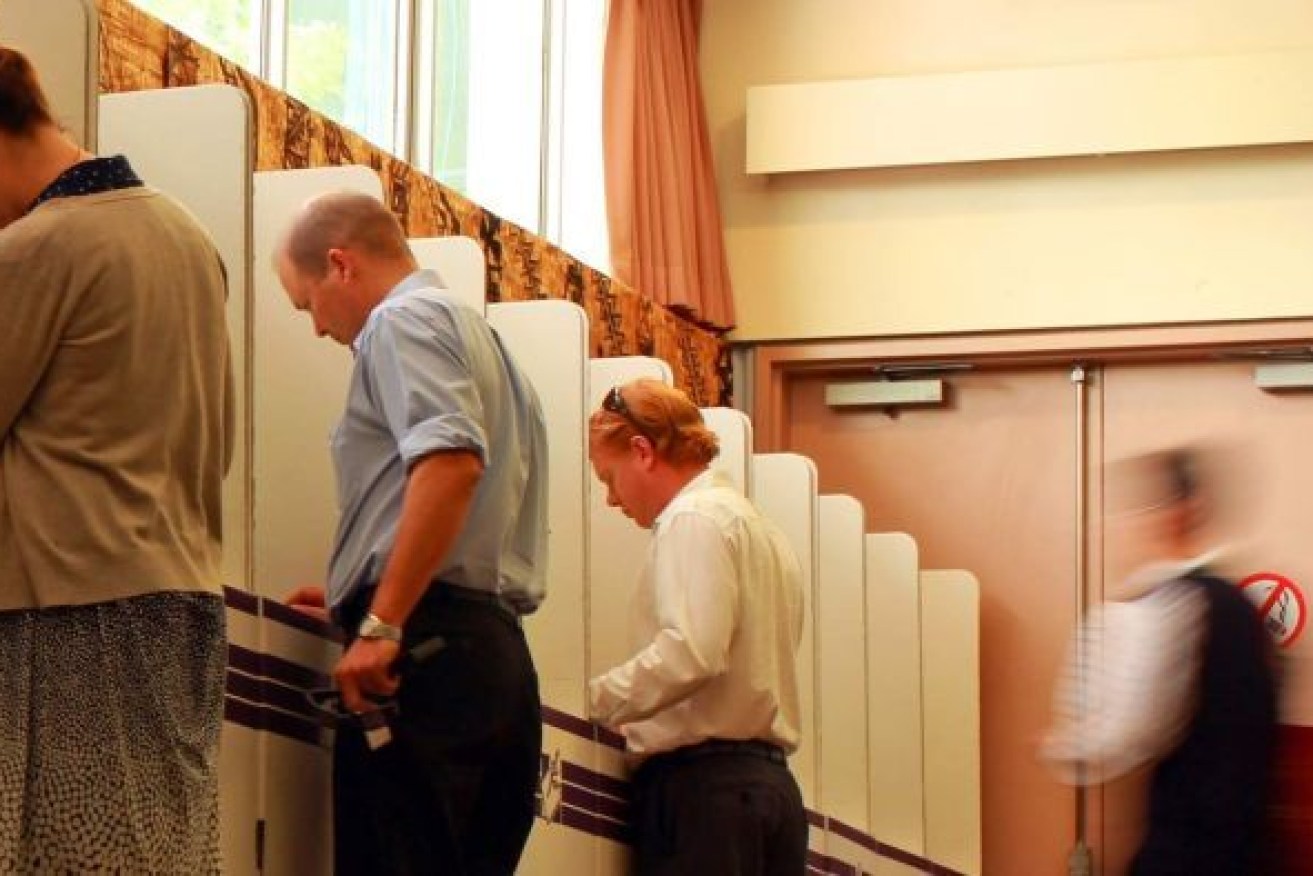Why dogged self-interest will crush the chance to make our democracy better
Australia has one of the best and fairest voting systems in the world, which is why a joint standing committee report into electoral matters deserves extensive discussion, writes Dennis Atkins


Voters may be forced to show ID when they vote in the next Federal election. (Photo: ABC)
At the end of a year when the administration of household online shopping accounts is possibly uppermost in many minds, considering how our electoral laws do and don’t work might seem irrelevant or unnecessary.
These laws might be out of sight and out of mind but they are vital to how our democracy works and, therefore, central to the health of the nation.
We only need to look at how the US has become mired in electoral shenanigans and poisonous intent at skulduggery to understand why a good electoral system matters.
Australia has one of the best and fairest in the world, making its care and soundness essential elements of our civic toolbox.
This is why the otherwise unappealing Report on the conduct of the 2019 federal election and matters related thereto by the Joint Standing Committee on Electoral Matters should be discussed far and wide. Let’s add our two bits worth right here.
The most depressing and disappointing aspect of this 230-page report is what it doesn’t do.
Reforms around issues that concern a wide cross-section of voters are given little or no serious consideration, reflecting the unholy consensus among the major players who quietly agree to preserving no-go zones in electoral administration lest self-interest is upset.
Therefore, the committee makes no meaningful proposals to clean up political advertising by banning misleading content, leaves untouched campaign spending limits, ignores restricting tax deductibility for political donors and turns a blind eye to the outrageous practice of harvesting postal vote data.
The committee didn’t touch the very important matter of disclosing donations in a timely fashion – leaving the current, completely unsatisfactory regulation regime in which donors are subjected to sunlight either every February or six months following an election. In Queensland state elections, donations of more than $1000 are disclosed within seven days, offering voters a contemporaneous view of who’s paying the piper.
So much for what the poor voter might think. What about the self-interest of the parties running the circus?
The committee is dominated by Coalition members which means the majority recommendations are skewed to the interests of the Liberals and Nationals.
The idea that has caused the most comment so far and should be of special interest in Queensland is the call to replace compulsory preferential voting with the optional system (OPV) which has been used more often than not in this state over the past 20 years.
A switch to OPV is proposed, without much supporting argument, with only two related but barely explained reasons offered: the current compulsorily preferential system can be confusing because the largest state, New South Wales, uses the optional method and this produced a historically high informal vote in 2019.
There is a logic behind OPV – should voters be made to give a second, third or further preference to someone about whom they might not have information or care? This can be mounted alongside support for general compulsory voting, although there is a philosophical inconsistency that intrudes. Such pertinent matters are absent in the report.
Labor opposes OPV but significant crossbench senators – particularly One Nation and the former South Australian Xenophon MPs – are in favour of the Coalition-backed plan. It has the greatest chance of happening although that’s no certainty.
Most alarming among the proposals likely to be realised is a curb on early voting. The report says the existing three-week window for pre-poll voting is too long because electors might not have a complete understanding of what parties or candidates are offering or stand for.
The real reason the big party machines don’t like three weeks of early voting is the demand it places on monetary and physical resources – the shorter the time frame, the cheaper it is for the party bosses.
The report says the pre-poll window should be narrowed to just two weeks. This might face significant opposition from voters, especially after the lived experience of elections held during the pandemic months of 2020.
As the Queensland post-election survey by pollsters JWS Research showed, voters embraced early voting this year with considered and informed enthusiasm. They won’t like any suggestion to curtail this way of voting.
The perennial favourite of conservatives, mandatory voter ID prior to voting, enrolling or changing enrolment, is back again but should be put in the “probably won’t happen” column.
The short experience in Queensland after the Newman government legislated for voter ID – a move overturned by Labor after 2015 – didn’t turn up any great disadvantage for voters of one particular party but the brief time this system was in place makes any conclusion on its worth rickety at least.
There are three big recommendations that would require constitutional change and therefore will probably never happen: banning by-elections for the House of Representatives so that vacancies are filled by the incumbent party (as happens in the Senate), extending the term of Parliament from three to four years for the House and three to eight for the Senate, and, abolition of the rule restricting the size of the House to no more than twice the size of the Senate.
These are meaty proposals that deserve greater consideration. The fact constitutional change is very hard in Australia should not prompt a reflexive dismissal of these matters.
This is an interesting but ultimately unsatisfactory report that promotes the interests of the dominant vested interests – the major parties – over those of the really important part of the electoral process, the voters.












